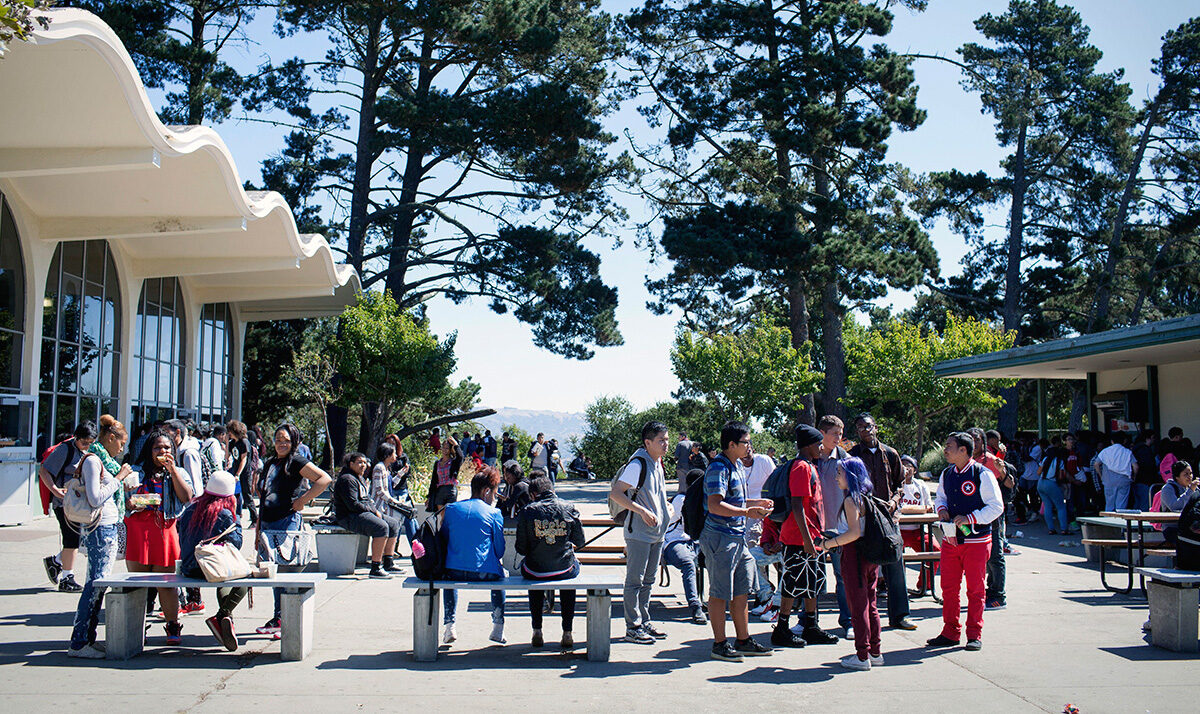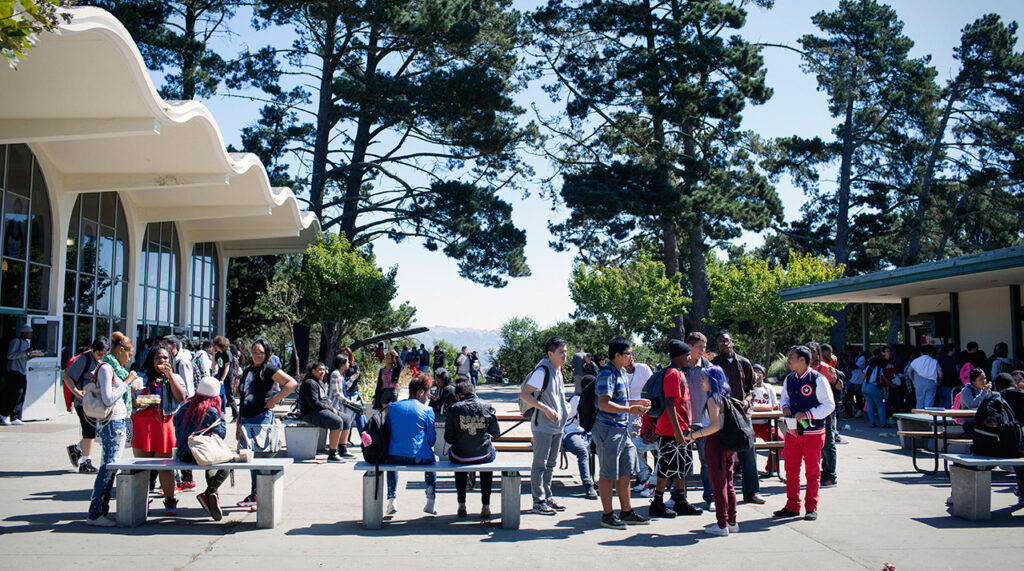Study: Suspensions harm ‘well-behaved’ kids
 Credit: Alison Yin for EdSource Today
Credit: Alison Yin for EdSource Today
 Credit: Alison Yin for EdSource Today
Credit: Alison Yin for EdSource Today
It'southward a belief repeated every mean solar day by teachers, principals and parents of rule-abiding children: Suspending disruptive students will allow the rest of the class to settle down and larn. But a new, large report calls this rationale into question.
The written report is believed to exist the first to look closely at the academic performance of private students who take never been suspended, just who nourish schools where others are suspended. After tracking nearly 17,000 students over three years, two Midwestern researchers constitute that high rates of schoolhouse suspensions harmed math and reading scores for non-suspended students.
The human relationship was inverse: The higher the number of suspensions during the course of a semester, the lower the not-suspended students' scores on end-of-semester reading and math evaluations, said Brea L. Perry, a sociologist at Indiana University and co-author of the study with Edward W. Morris, a sociologist at the University of Kentucky. The written report, which was published in the Dec issue of the peer-reviewed periodical American Sociological Review, involved students in 17 middle schools and loftier schools in a Kentucky school district.
The higher the number of suspensions during the class of a semester, the lower the non-suspended students' scores on end-of-semester reading and math evaluations, the study plant.
"What surprised united states of america the most was this had not actually been studied this way before," Perry said. The findings propose that high levels of suspensions "can have a very negative issue on those so-chosen 'skillful apples,' or rule-abiding students," she said.
The findings were "robust," Morris said, even when the results were controlled for the level of violence and disruption at schools, schoolhouse funding and educatee-teacher ratios.
A low or average rate of suspensions appeared to have no academic impact on the non-suspended students, Perry said. "It but becomes harmful when schools are above average in their use of suspensions," she said.

Credit: Edward Morris
Edward Morris
The reason, theorized Morris, whose work has focused on school environments and cultures, might accept to do with the levels of anxiety and disconnection created in students when their peers are subject to frequent suspensions, frequently for bug such as apparel lawmaking violations or insubordination.
"When you are in a very punitive environment, you're getting the bulletin that the school is focusing on crime control and behavior control," he said. "Schools should really be virtually relationships."
"This is a new addition to the research, and a positive one," said Daniel Losen, manager of the Center for Ceremonious Rights Remedies at UCLA's Ceremonious Rights Projection and editor of the new book, Closing the School Field of study Gap. Other studies have found that when schools reduce break rates and found alternative methods of resolving conflict, academic achievement goes upwardly, Losen said. But he said he wasn't enlightened of a report that specifically examined the bookish effects of suspensions on non-suspended students over time.
"The studies I've seen are not of this magnitude," said Laura Faer, statewide education rights managing director for the Public Counsel Law Center, a California public interest law house that has been promoting culling disciplinary measures.
Faer said that when she speaks about school discipline practices to groups, the number ane comment from the audition is that suspensions are necessary because "when you lot remove bad kids, it helps other kids acquire." This new written report, she said, takes inquiry about the importance of a positive school civilisation, and the harms of an excessively punitive civilization, "to a whole unlike level."
In California, Gov. Jerry Dark-brown has signaled a growing commitment on the part of the state to find more than positive approaches to disciplining students, most notably through his signature on a new law, Assembly Bill 420, which limits the utilize of "willful defiance" as a reason to append students. The term is defined every bit disruptive beliefs or defiance of authority. More 700,000 school suspensions were recorded in California in 2010-eleven, according to Assemblyman Roger Dickinson, D-Sacramento, author of the neb.
In a blog mail service discussing the written report, Perry wrote, "Researchers and kid advocates accept argued that contemporary disciplinary policies create winners and losers, often along racial and socioeconomic lines. Our inquiry suggests that at that place are no winners."
To get more reports like this one, click here to sign upward for EdSource'southward no-cost daily email on latest developments in education.
Source: https://edsource.org/2015/study-suspensions-harm-well-behaved-kids/72501
0 Response to "Study: Suspensions harm ‘well-behaved’ kids"
Post a Comment